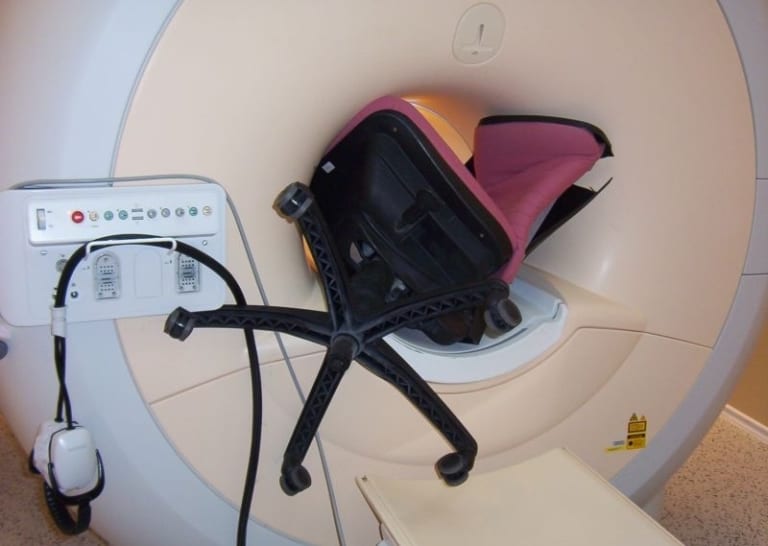The Danger of Metal Objects in MRI
Metal objects can pose significant risks in the MRI environment due to the powerful magnetic field. These objects can become dangerous projectiles, cause burns, or interfere with the quality of the MRI images.

Types of Metal Objects to Be Aware Of
- Personal Items: Keys, coins, jewelry, watches, hair pins, etc.
- Electronic Devices: Mobile phones, tablets, laptops, hearing aids.
- Medical Equipment: Oxygen tanks, IV poles, wheelchairs (unless MRI-compatible).
- Implants and Prosthetics: Some types may be unsafe or require special precautions.
- Clothing Items: Belts with metal buckles, underwire bras, clothes with metallic threads.
Safety Guidelines
- Remove all metal objects before entering the MRI room.
- Inform MRI staff about any implants, prosthetics, or potential metal in your body.
- Never bring unauthorized equipment into the MRI room.
- If you're unsure about an item, always ask the MRI technologist before entering the room.
- Be aware that even small metal objects can become dangerous in the MRI environment.
Danger Scale for Common Metal Objects
Low Risk
Aluminum, Copper
Medium Risk
Stainless Steel
High Risk
Iron, Nickel, Cobalt
Note: This scale is a general guide. Always consult MRI staff about specific items.
What to Do in Case of a Metal Object Incident
- Do not attempt to retrieve the object yourself.
- Immediately notify the MRI technologist or radiologist.
- If safe to do so, assist in evacuating the MRI room.
- Wait for trained personnel to handle the situation.
- Report any injuries or unusual sensations immediately.